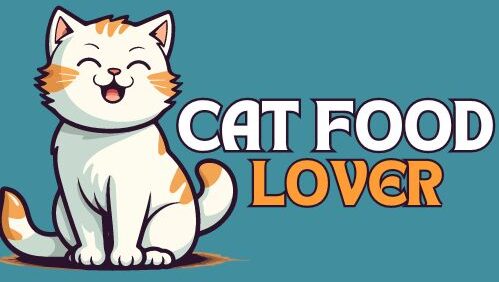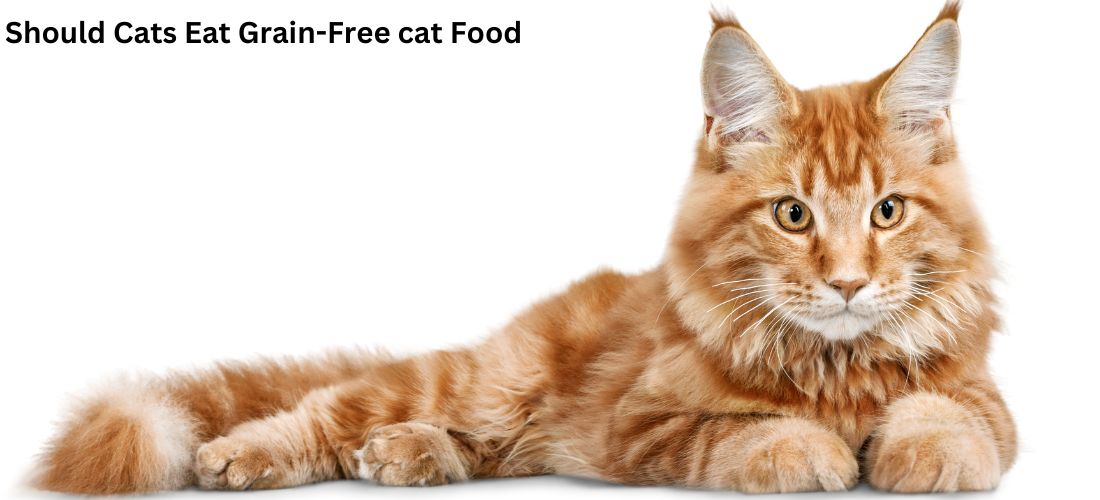Should Cats Eat Grain-Free Food? That’s the big question we’re tackling in my brand-new blog! If you’re curious about whether grain-free diets are the way to go for your fur-ball, you’re in the right place. I’m here to break it all down for you and explore the details of grain-free cat food. Stick around for exciting insights and tips!
Should I Feed My Cat a Grain-Free Diet?
When considering whether to feed your cat a grain-free diet, it is important to consult with a veterinarian to determine if this type of food is right for your cat. While grain-free pet food can be beneficial for some cats with food allergies or grain sensitivities, it is not necessary for all cats. Cats are obligate carnivores and do not require carbohydrates in their diet like dogs do. Grain-free pet food may be a good option for cats who have cat food sensitivities. Some studies have suggested a link between grain-free diets and an increased risk of heart disease in cats.
What Is grain-free cat food?
Grain-free cat food is a type of cat food that is free of grains like wheat, corn, and rice. This type of food is considered good for your cat because cats are carnivores and do not require grains in their diet. Grain allergies are common in cats, so feeding them grain-free food can help reduce symptoms. Many high-quality food brands offer grain-free cat food options in both dry food and wet food varieties. Switching to a grain-free diet can help your cat stay healthy and thrive.
Should Cats Eat Grain-Free Food or Not?
So, should cats eat grain-free food or not? Well, it really depends on your cat’s individual needs. Some experts argue that a grain-free diet is good for cats because they believe cats don’t need grains. As a cat parent, you have to decide what to feed your cats based on their specific needs. However, some experts also warn that grain-free food may not be the best option for all cats, as cats need grains to get essential carbohydrates from whole grains.
There’s been some controversy surrounding the link between grain-free dog food and canine heart disease, but the same hasn’t been documented in cats. Food allergies are rare in cats, so switching to a gluten-free diet might not be necessary. It’s important to do your research and consult with your vet to determine the best diet for your furry friend.
What’s the problem with grain-free food?
Grain-free food diets have become popular among cat and dog owners in recent years. However, there are concerns about the potential drawbacks of feeding pets a grain-free diet. Some experts believe that grain-free food may not be the best option for cats of all ages, as common grains found in cat food can actually provide essential nutrients.
When you put your cat on a grain-free diet, you are missing out on important nutrients that traditional diets offer. It is best to feed cats a diet that includes a variety of food options to ensure they are getting all the necessary nutrients.
Are Grain-Free Foods Nutritionally Balanced for Cats?
Grain-free diets have gained popularity in the pet food market as owners look for the best food options for their feline friends. However, some experts argue that grain-free food may not be nutritionally balanced for cats. Cats are obligate carnivores, so a specific diet would be more beneficial. Some studies have also linked grain-free diets to heart problems in cats.
While grain-free food may seem like a healthy choice, it is important to consider the nutritional content of the food. Added to cat diets for food safety, grains can provide essential nutrients. As always, consulting with a veterinarian about the kind of food to put in your cat’s food bowl is the most important step.
How do grain-free foods measure up to nutritional standards?
Grain-free diets for cats have gained popularity in recent years, with many owners opting for grain-free food for their feline companions. However, some experts argue that a grain-free diet may not be the best choice for all cats, as it may not meet their nutritional standards. Some studies have shown a link between grain-free food and heart issues in cats, so it’s important for cats and their owners to carefully consider what their feline friends are eating.
Can Grain-Free Foods Improve Feline Health?
Grain-free diets have been gaining popularity in the pet food industry, with many believing that they can improve cat health. However, recent studies have shown that grain-free food may not be the best option for cats as well. In fact, some research suggests that grain-free food could be bad for cats due to potential links between these diets and heart issues. So, it’s important for cat owners to carefully consider what food is made of and consult with a veterinarian to determine what food is best for their cats.
Do grain-free foods support digestive health in cats?
Grain-free diets have become popular in recent years as owners look for alternatives to traditional cat food diets. While some believe that grain-free food is beneficial for cats and can support digestive health, others argue that grain-free food may actually be bad for cats. In a study of 56 cats, researchers found that cats can get just as much nutritional benefit from a diet that includes grains as they can from a grain-free diet.
Are there any benefits for cats with specific health conditions?
Grain free diets can be beneficial for cats with specific health conditions such as food allergies or sensitivities. These diets eliminate common allergens found in grains, which can help alleviate symptoms and improve overall health. However, some experts caution that grain free food may not be suitable for all cats and could potentially lead to nutritional deficiencies.
Free food is bad for cats with certain health issues like diabetes or kidney disease. It is important for pet owners to consult with a veterinarian before making any changes to their cat’s diet, especially if they have specific health conditions that may be impacted by a grain free diet.
Are Grains Really Bad for Cats?
Grain free food has become increasingly popular among pet owners, with many believing that grains are harmful to cats. However, experts suggest that grains can actually be a healthy part of a cat’s diet, providing important nutrients and fiber. Some cats may even have allergies to certain grains, but for the majority of felines, grains are not inherently bad for their health.
Are There Risks Associated with Grain-Free Diets for Cats?
So, like, have you heard about this whole debate on grain free food being potentially bad for cats? Some people are saying it could lead to heart problems and stuff. But then others swear by it and say their cats are thriving on it. It’s all so confusing!
I mean, I want what’s best for my fur baby, but all this conflicting info is making my head spin. Maybe I should just stick to the regular old cat food and not risk it. But then again, who knows what’s really the best choice these days? Ugh, being a cat parent is tough.
Conclusion
So, after all that back and forth, we finally came to a conclusion in the debate about dogs and cats. It turns out, grain free cat food might not be the best option for our feline friends. Some argue that it’s the best cat food right now, while others believe that grain free food is bad for cats in the long run. We even had a gluten-free cat owner chime in, saying that gluten-free cat food is the way to go. But at the end of the day, it’s important to consider what’s best for our pets and the food they eat. Maybe it’s time to try out a new food and see how our cats really feel about it.

